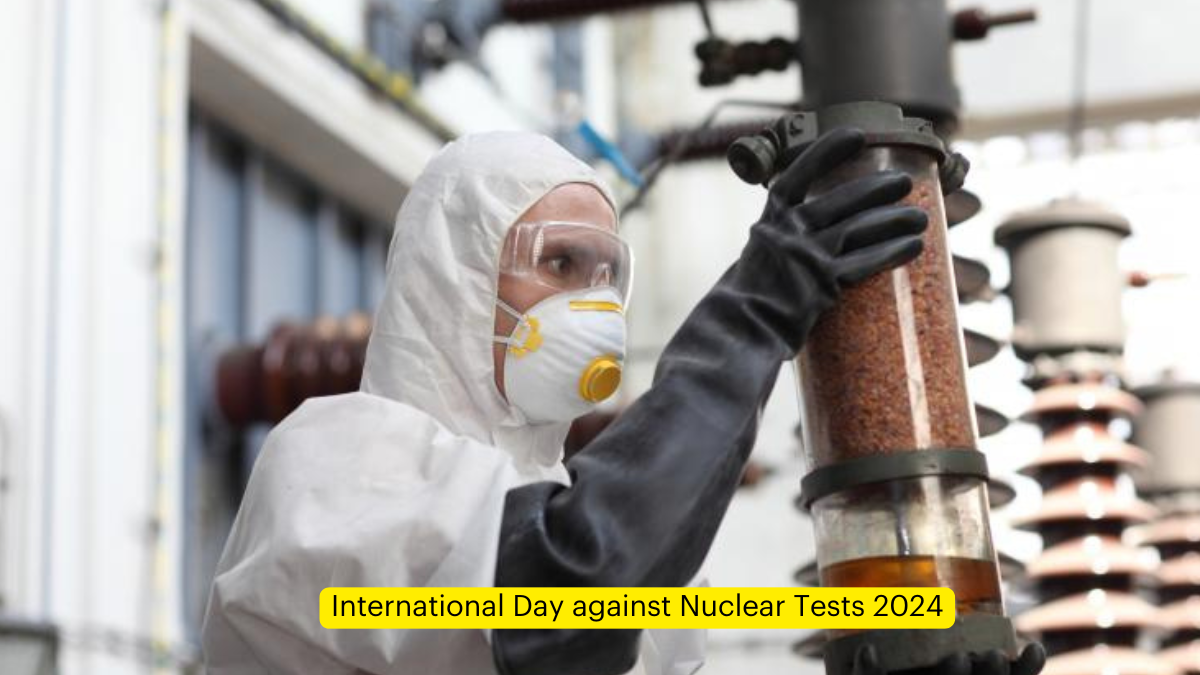Every year on August 29, the world observes the International Day Against Nuclear Tests. This significant day serves as a global reminder of the devastating effects of nuclear weapons testing and the urgent need for a world free from the threat of nuclear destruction. Since the dawn of the nuclear age in 1945, over 2,000 nuclear tests have been conducted, leaving a legacy of environmental damage and human suffering.
Historical Context
The Birth of the Nuclear Era
The nuclear age began on July 16, 1945, when the United States detonated a 20-kiloton atomic bomb codenamed “Trinity” in New Mexico. This test marked the beginning of a new and terrifying chapter in human history. Shortly after, the world witnessed the catastrophic power of nuclear weapons when the United States dropped atomic bombs on the Japanese cities of Hiroshima and Nagasaki on August 6 and 9, 1945, respectively.
The Cold War and Nuclear Proliferation
Following World War II, the United States and the Soviet Union entered into a nuclear arms race, ushering in the era known as the Cold War. This period saw rapid advancements in nuclear technology and a dramatic increase in the number of nuclear tests conducted worldwide.
- The Soviet Union tested its first nuclear device, “Joe 1,” on August 29, 1949.
- The United Kingdom joined the nuclear club in 1952, initially testing in Australia and later in the United States.
- France and China followed suit in the 1960s.
Early Disregard for Safety
In the early days of nuclear testing, little consideration was given to the long-term effects on human health and the environment. Atmospheric tests released radioactive fallout that spread far beyond the test sites, contaminating soil, water, and food chains. The consequences of these tests continue to affect populations today, with increased rates of cancer and other health issues reported in areas exposed to nuclear fallout.
Establishment of the International Day Against Nuclear Tests
United Nations Resolution
On December 2, 2009, the 64th session of the United Nations General Assembly unanimously adopted resolution 64/35, declaring August 29 as the International Day against Nuclear Tests. This resolution was a significant step towards raising global awareness about the effects of nuclear weapon test explosions.
Kazakhstan’s Initiative
The resolution was initiated by the Republic of Kazakhstan, with support from a large number of sponsors and co-sponsors. The choice of August 29 commemorates the closure of the Semipalatinsk Nuclear Test site in Kazakhstan on August 29, 1991. This site was one of the primary testing grounds for Soviet nuclear weapons and its closure marked a pivotal moment in the global movement against nuclear testing.
Objectives and Significance
The International Day Against Nuclear Tests aims to:
- Increase public awareness about the effects of nuclear weapon test explosions.
- Highlight the need for a cessation of such tests as a step towards achieving a nuclear-weapon-free world.
- Promote peace and security by advocating for the complete elimination of nuclear weapons.
Global Efforts and Developments
Comprehensive Nuclear-Test-Ban Treaty (CTBT)
The 1996 Comprehensive Nuclear-Test-Ban Treaty (CTBT) is the primary international instrument designed to end all forms of nuclear testing. However, the treaty has yet to enter into force, as it requires ratification by all 44 countries listed in Annex 2 of the treaty.
UN Secretary-General’s Initiatives
The UN Secretary-General has recognized the importance of the nuclear test ban in his disarmament agenda “Securing our Common Future,” launched on May 24, 2018. This agenda emphasizes that the norm against testing serves both disarmament and non-proliferation objectives.
Ongoing Challenges
Despite global efforts, the complete elimination of nuclear weapons remains a challenge. As of 2024, nine countries possess nuclear weapons:
- Russia: 5,580 warheads
- United States: 5,748 warheads
- China: 500 warheads
- France: 290 warheads
- United Kingdom: 225 warheads
- Pakistan: 170 warheads
- India: 172 warheads
- Israel: Estimated 90-200 warheads (unconfirmed)
- North Korea: Estimated 40-50 warheads (unconfirmed)
The Role of Civil Society
Civil society has played a crucial role in the effort to halt nuclear testing since the beginning of the nuclear age. Various groups and individuals have contributed to this cause:
- Scientists: Physicists, seismologists, and other experts have provided valuable insights into the effects of nuclear testing and verification methods.
- Medical professionals: Physicians have raised awareness about the health impacts of nuclear fallout.
- Advocacy groups: Women’s organizations, research institutes, and disarmament NGOs have been instrumental in pushing for policy changes.
- Affected populations: “Downwinders” exposed to radioactive contaminants and survivors of the Hiroshima and Nagasaki bombings (known as hibakusha) have shared their experiences to educate the public.




 National Women's Day 2026 India: Signifi...
National Women's Day 2026 India: Signifi...
 World Radio Day 2026: Why Radio Still Ma...
World Radio Day 2026: Why Radio Still Ma...
 National Productivity Council Marks 68th...
National Productivity Council Marks 68th...








